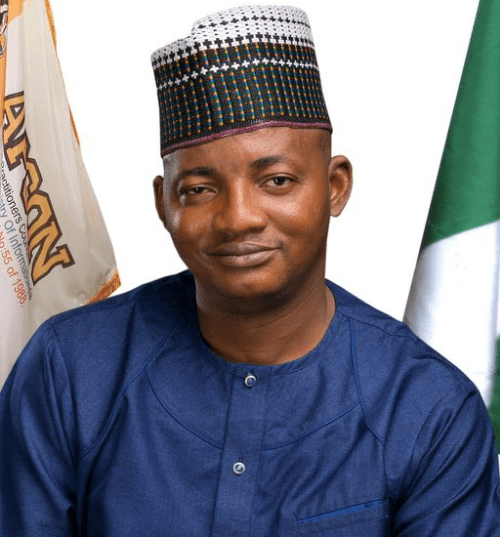The 2025 Cannes Lions International Festival of Creativity ended with its usual global celebration of powerful storytelling, brilliant ideas, and bold campaigns. But for Nigeria, this year brought a complicated mixture. On the one hand, there’s the a sense of pride – that a Nigerian brand recorded the feat on a global stage. On the other hand, it’s humbling and sobering that the winning campaign was done by a German agency.
It was thus one moment that made history, but still didn’t feel fully ours and truly native.
Herconomy, a Nigerian fintech company focused on women’s empowerment, made global headlines after winning three Silver Lions for its innovative savings product, Breastmilk Money. The product offers a 14.3% annual interest rate to women who breastfeed—a creative solution blending financial inclusion, maternal health, and economic empowerment. It was recognised in the Creative Data, Direct, and Health & Wellness categories, placing it among some of the world’s top campaigns.
Herconomy, a Nigerian fintech company focused on women’s empowerment, made global headlines after winning three Silver Lions for its innovative savings product, Breastmilk Money. The product offers a 14.3% annual interest rate to women who breastfeed—a creative solution blending financial inclusion, maternal health, and economic empowerment. It was recognised in the Creative Data, Direct, and Health & Wellness categories, placing it among some of the world’s top campaigns.
Read Aslo: TVC Communications crowned Africa’s Tech Media Trailblazer at Ghana’s Digital Innovation Awards
In many ways, this is a historic achievement. No Nigerian brand has ever received this level of recognition at Cannes Lions. Herconomy also made the shortlist in four other major categories, including Titanium and Innovation, a clear sign that the world is paying attention to ideas coming out of Africa.
But here’s the catch: the campaign was developed not by a Nigerian agency, but by Serviceplan, a leading creative agency based in Germany.
But here’s the catch: the campaign was developed not by a Nigerian agency, but by Serviceplan, a leading creative agency based in Germany.
This fact has left many in Nigeria’s creative industry unsure of how to celebrate or own this unique win as their own. While Herconomy is undeniably a Nigerian company, and the idea was rooted in local insight, the execution-the actual work that won the Lions—came from Europe. And that’s why, for some, the victory feels distant.
Let it be clear: this is not an attempt to downplay Herconomy’s success. In fact, it’s a bold reminder of what is possible when innovation, purpose, and creativity meet. Herconomy’s founder and CEO, Ifedayo Durosinmi-Etti, described the win as “more than just recognition” but a validation of the brand’s mission to transform the economic lives of African women. That message matters deeply. But in a country hungry to prove the strength of its own creative industry, it also reveals a gap.
The truth is, Nigerian agencies were largely absent at this year’s festival—again. Since X3M Ideas made Nigeria proud in 2023, when it became the first agency in the country to bring home a Cannes Lion, no other Nigerian agency has managed to return to the winners’ circle.
X3M Ideas, however, continued to wave the flag in 2025—this time at the ACT Responsible exhibition, a special showcase during Cannes that highlights socially conscious advertising. Their campaign, Blood Sacrifice for the Red Cross, was named Favourite Campaign in the Solidarity category. It took the deeply cultural idea of sacrifice and reinterpreted it through the lens of blood donation as a modern act of saving lives. Emotionally relevant and proudly African, the work resonated with global audiences.
Watch Also:MARKETING EDGE ONTV
Steve Babaeko, CEO of X3M Ideas, called the recognition “a win for every African creative who believes our stories matter.” The agency’s continued presence on the global stage, including its recent inclusion in the Financial Times list of Africa’s Fastest Growing Companies, shows what is possible when local insight meets world-class execution.
Still, Nigeria’s broader absence at Cannes points to deeper issues. Many local agencies struggle with limited budgets, a lack of access to international awards circuits, and an industry mindset focused on short-term results rather than long-term brand storytelling. Submission fees alone—running into thousands of dollars per campaign—also make participation a luxury many can’t afford.
Yet other emerging markets have found ways to succeed. Agencies in Latin America, Southeast Asia, and Eastern Europe have built global campaigns by partnering with NGOs, tapping into universal themes, and investing in ideas that inspire, not just sell.
For Nigeria, the lesson from Cannes 2025 is loud and clear: global recognition doesn’t come by default—it must be earned. That means clients must start valuing creativity as a strategic investment. Agencies must develop work that connects beyond local audiences. And the entire industry—regulators, investors, creatives—must collaborate to build platforms where Nigerian stories can be told, seen, and celebrated globally.
Herconomy’s win is important. It shows the world that African problems can be solved with African ideas. But if Nigerian creatives are to own these wins, we must be part of the execution, not just the inspiration.
Until then, the applause from Cannes may continue to feel like it’s meant for someone else.






Comment
No comments found.